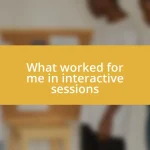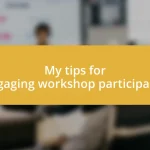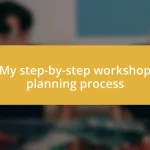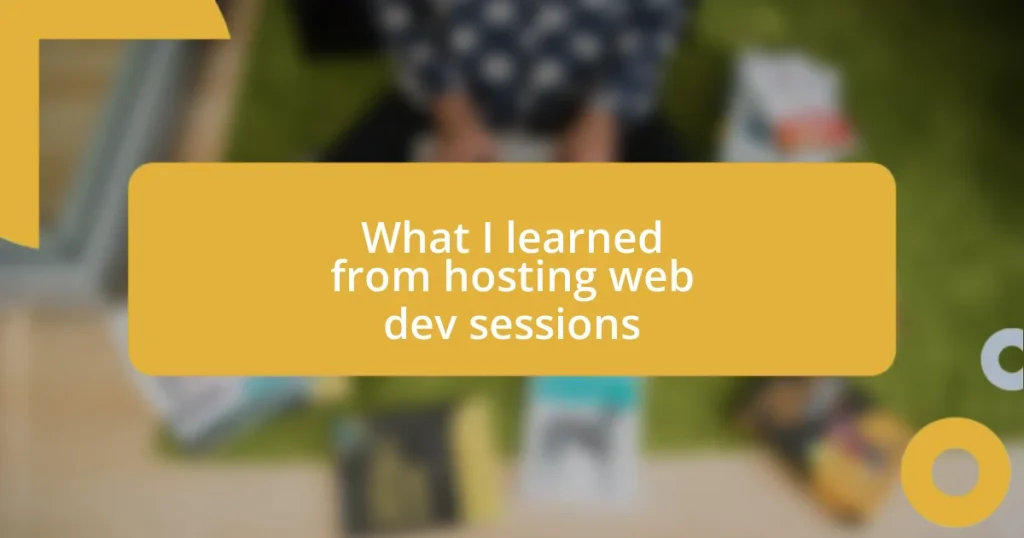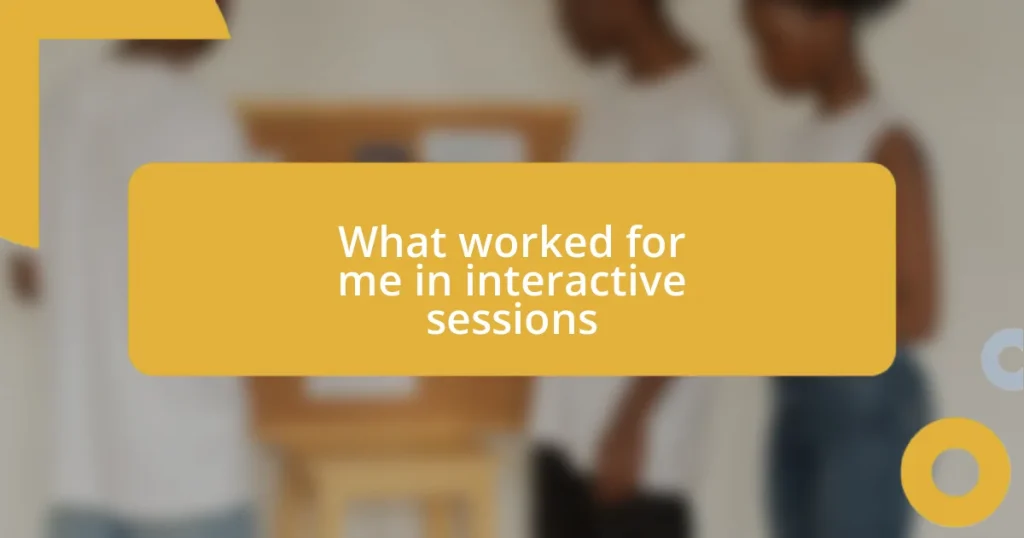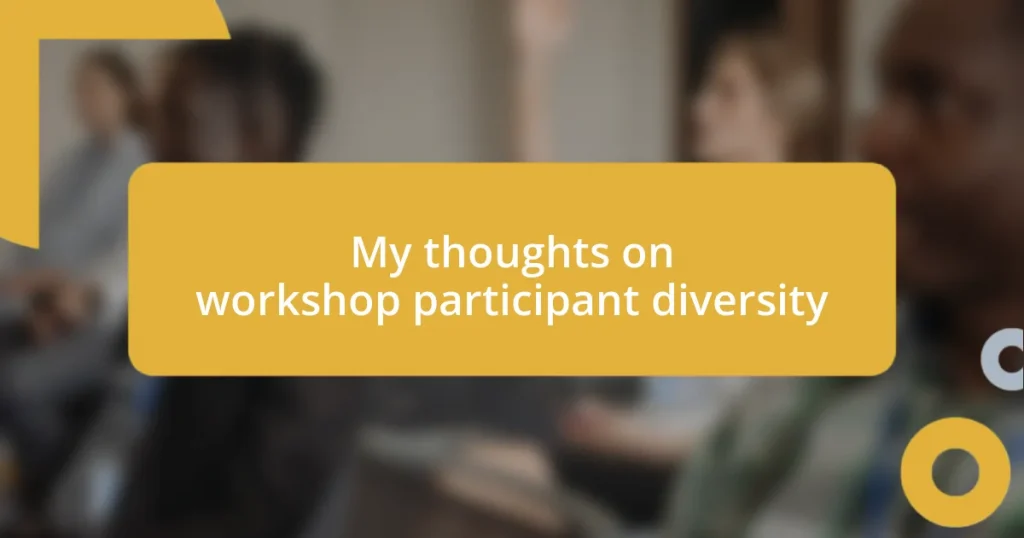Key takeaways:
- Hosting web development sessions enhances critical skills such as public speaking, active listening, and adaptability, while fostering a sense of leadership and community.
- Participant feedback is vital for improvement, revealing preferences for hands-on activities and pacing adjustments that boost engagement and learning effectiveness.
- Effective session planning should focus on clarity, flexibility, and anticipating questions to improve participant interaction and create a dynamic learning environment.
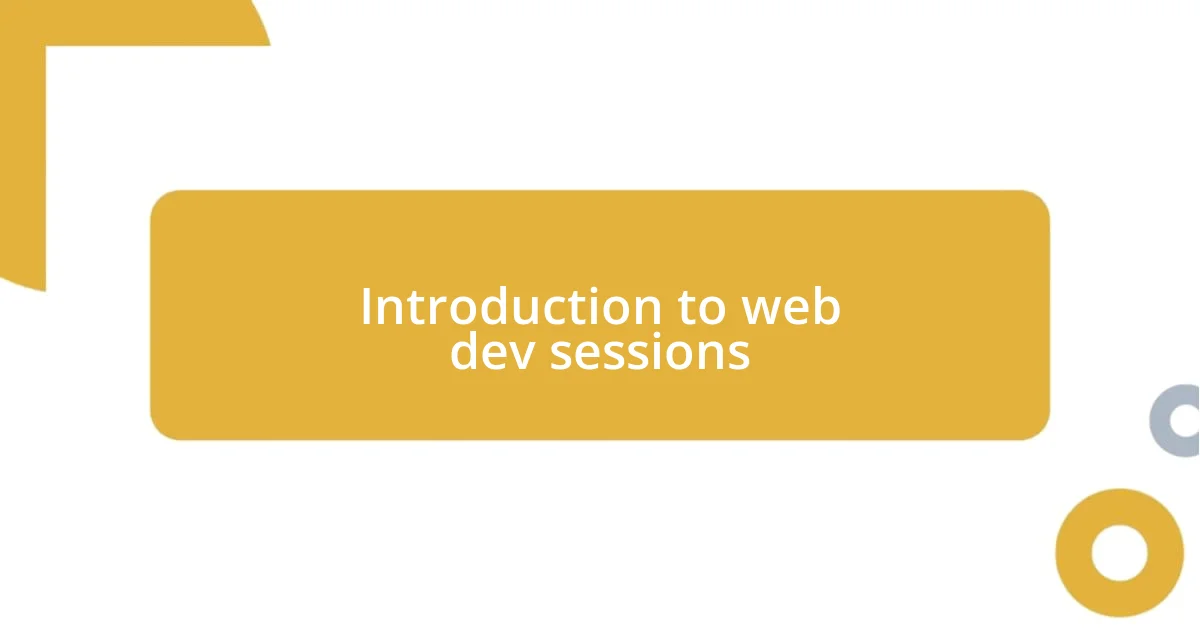
Introduction to web dev sessions
Web development sessions are more than just meetings; they’re a lively exchange of ideas and knowledge among passionate individuals. I remember my first session vividly—nervously fumbling through my notes as I introduced a project that felt like a piece of my soul. But as the conversation flowed, I realized that everyone in the room shared a common goal: to learn and grow together in our craft.
In these sessions, we dive deep into the latest technologies, coding practices, and design principles. I’ve found that discussing challenges I face can often lead to unexpected solutions from others who’ve been there. Isn’t it fascinating how collaboration ignites creativity? It’s in those moments of shared struggle that friendship—and sometimes, laughter—blossoms.
Each web dev session cultivates a sense of community that’s both inspiring and empowering. I often leave these gatherings with a renewed sense of purpose, eager to implement the fresh insights gained. Have you ever experienced that buzz of excitement after sharing an idea that resonates? That’s the magic of these sessions; they remind me why I fell in love with web development in the first place.
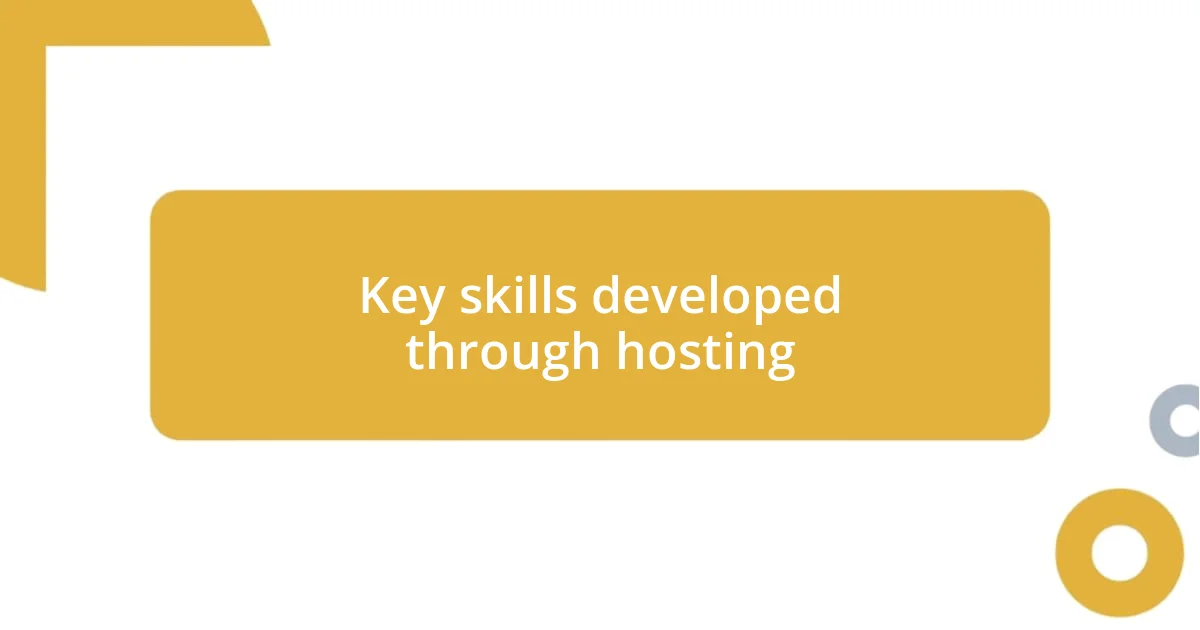
Key skills developed through hosting
Hosting web development sessions has profoundly sharpened my communication skills. I’ve learned to convey complex ideas simply and effectively, tailoring my approach to different audiences. There was a moment when I had to explain a difficult concept involving APIs; the feeling of clarity that washed over me when team members nodded in understanding was incredibly rewarding. It made me appreciate the power of clear communication and active listening.
Key skills developed through hosting include:
– Public Speaking: Gaining confidence while presenting.
– Active Listening: Learning to understand others’ perspectives.
– Adaptability: Adjusting content on-the-fly based on audience questions.
– Conflict Resolution: Navigating differing opinions during discussions.
– Networking: Building connections and fostering collaborative relationships.
On a more personal level, I’ve discovered leadership qualities I never knew I possessed. When I organized my first session, the thrill of rallying participants around a common purpose was exhilarating. I felt a palpable connection as ideas bounced around, demonstrating that leadership isn’t about authority; it’s about empowering others to shine.
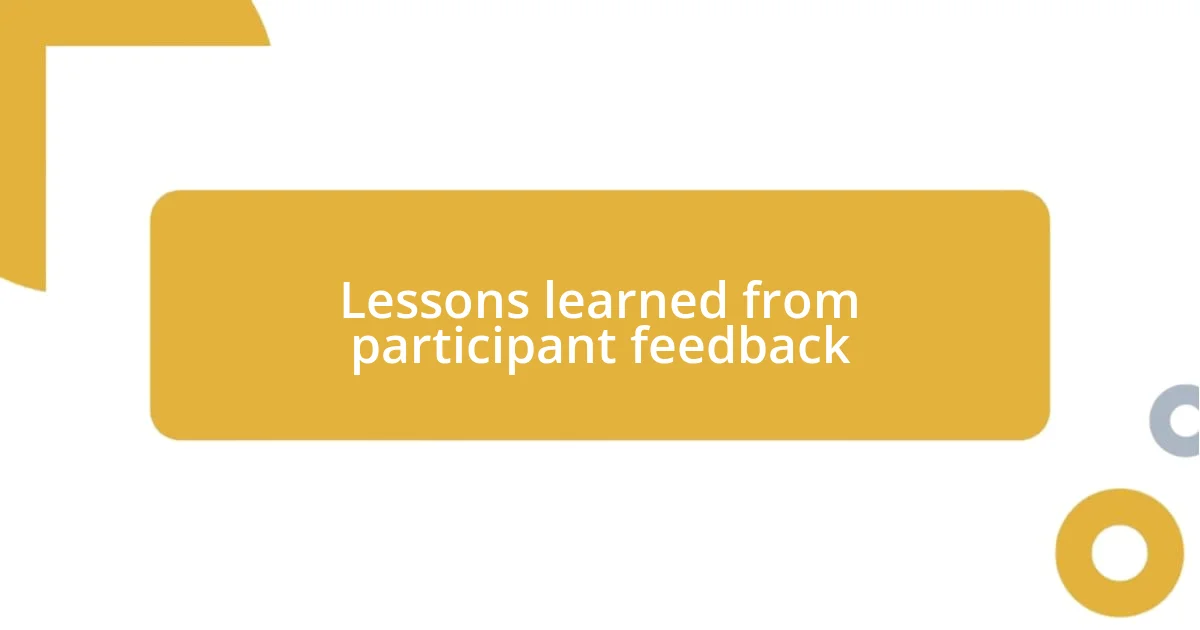
Lessons learned from participant feedback
Feedback from participants has been invaluable in shaping my approach to hosting web development sessions. I remember one particular instance when a participant suggested we incorporate hands-on activities instead of traditional lectures. Initially, I was hesitant; I thought people might prefer a more structured format. However, after implementing this change, I noticed a surge in engagement and enthusiasm. It was a profound reminder that sometimes shaking up the norm can lead to exciting discoveries.
Throughout these sessions, I’ve received diverse feedback that highlights both strengths and areas for improvement. Some participants praised the collaborative environment, while others expressed a desire for more advanced topics. By analyzing this feedback, I learned the importance of striking a balance between foundational concepts and more complex subjects. This process has not only enhanced my hosting skills but also deepened my understanding of the participants’ needs.
Listening to participant feedback has become a cornerstone of my development as a host. It’s fascinating how constructive criticism can pave the way for growth. I often think back to when a participant pointed out that my pacing was a bit fast. Taking that to heart, I’ve since slowed down and created space for questions, which has drastically improved the overall experience for everyone involved. This journey has shown me the power of adaptability and the importance of placing the participant experience front and center.
| Feedback Type | Participant Insights |
|---|---|
| Hands-on Activities | Enhances engagement and practical understanding |
| Advanced Topics | Attracts more experienced developers seeking deeper knowledge |
| Pacing | Adjusting allows space for questions and better understanding |
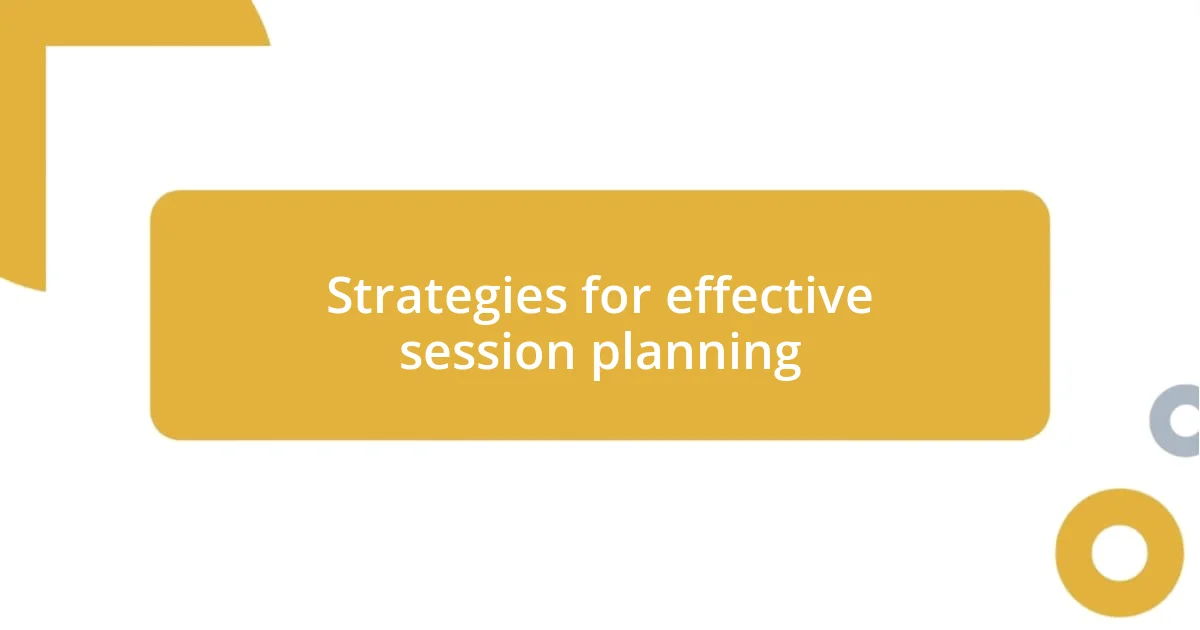
Strategies for effective session planning
Effective session planning is all about clarity and structure. I remember sitting down to outline my first session, and I realized how crucial it was to break the content into digestible chunks. By ensuring a logical flow, participants could follow along without feeling overwhelmed. It got me thinking—how often do we present information that’s too dense for our audience? Simplifying concepts not only aids comprehension but also makes the learning experience enjoyable.
One strategy I found invaluable is mapping out potential questions beforehand. The first time I did this, I was astonished at how much smoother the session flowed. Participants felt more engaged, and I could pivot based on their interests seamlessly. Have you ever felt the pressure of a silence when a question was asked? Preparing for these moments not only alleviates that pressure but transforms potential stumbles into opportunities for deeper discussions.
Lastly, I’ve learned to embrace flexibility in my planning. Initially, I was rigid, feeling that any deviation from my agenda would be a failure. However, after one session where a spontaneous discussion took off, I discovered the magic of allowing the topic to evolve naturally. It’s moments like these that truly enrich the learning environment and showcase the collective wisdom of everyone involved. How rewarding is it to see participants take ownership of their learning? I can tell you—it’s one of the most fulfilling experiences in hosting.
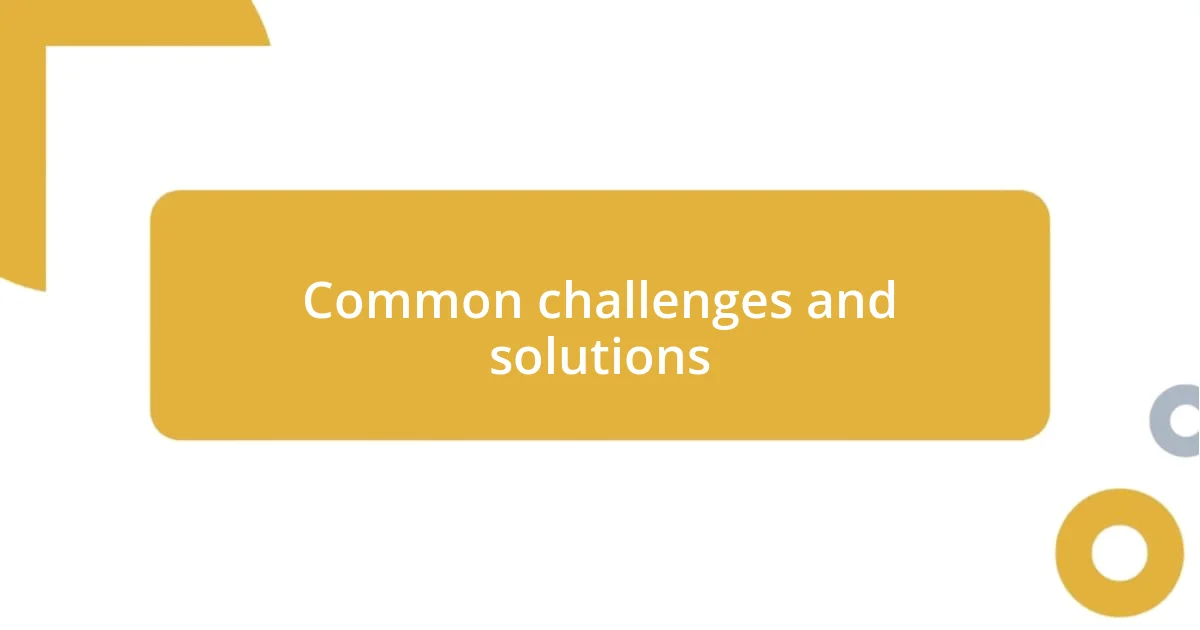
Common challenges and solutions
Common challenges often arise during web development sessions, but I’ve found that each one offers a chance for growth. For instance, in one session, technical difficulties plagued our attempts to share a live coding demonstration. It was frustrating, to say the least; I could feel the tension in the room. Instead of panicking, I quickly shifted gears by engaging the participants in an open discussion about their experiences. This unexpected change not only eased the discomfort but revealed valuable insights from their varied backgrounds.
Another challenge I’ve faced is keeping the energy levels high throughout the session. I remember one particular day when the group seemed disengaged, and I knew I had to do something. So, I decided to introduce a quick brainstorming exercise where participants collaborated on a project idea. This moment of interaction sparked excitement, and I realized that a little creativity could rekindle enthusiasm. It’s a reminder that sometimes, a small shift can lead to significant changes in the atmosphere.
Finally, balancing diverse skill levels among participants can feel daunting. Early on, I struggled to cater to both beginners and more advanced developers in the same session. I distinctly recall one instance where it felt like I was losing half the group’s interest. To address this, I started using breakout groups, allowing participants to tackle issues suited to their skill level while still sharing insights with each other. This approach not only fostered collaboration but also created a sense of community. Honestly, seeing them thrive in groups tailored to their needs has been incredibly rewarding, reinforcing that everyone has something valuable to contribute.

